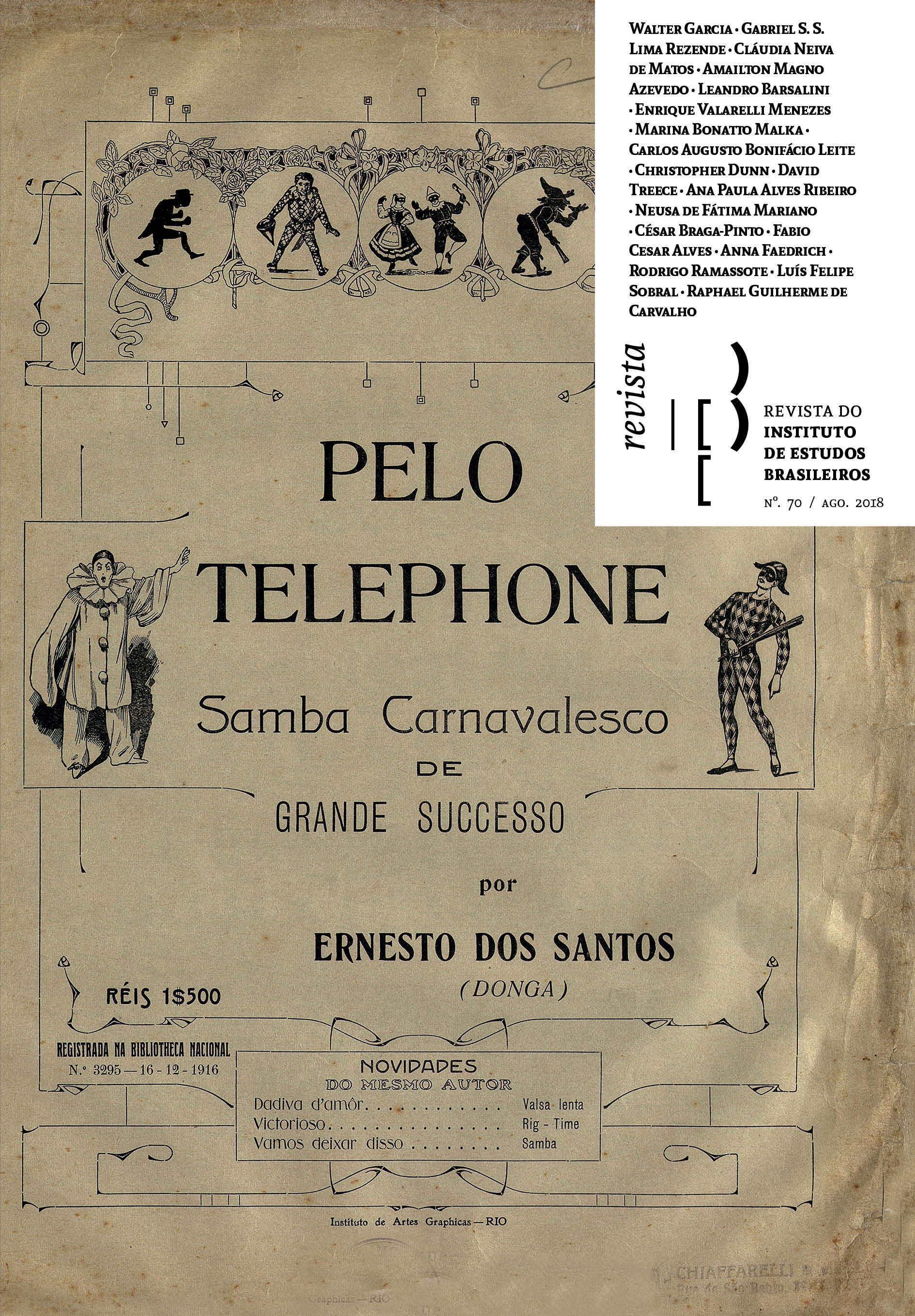Candeia, o projeto Quilombo e a militância antirracista nos anos 1970
DOI:
https://doi.org/10.11606/issn.2316-901X.v0i70p166-188Palavras-chave:
Samba; antirracismo; quilombo; Candeia; resistênciaResumo
Ao participar da ressurgência da militância antirracista em meados da década de 1970, o Grêmio Recreativo de Arte Negra Escola de Samba Quilombo, fundado pelo compositor e cantor Antônio Candeia Filho, se inspirava no grande exemplo histórico da resistência negra, ou seja, as comunidades de escravos rebeldes chamadas quilombos. Este ensaio reavalia as perspectivas do projeto Quilombo em relação ao antirracismo e à política identitária negra, e mostra como, no auge da ditadura militar, ele propunha uma visão progressista e democrática da resistência enquanto projeto criativo coletivo – tipificado culturalmente pela escola de samba comunitária e pela prática improvisatória colaborativa do samba de partido-alto –, que colocava no centro do seu ideário as tradições estéticas e filosóficas negras, ao passo que atravessava de aneira inclusiva as fronteiras raciais de cor.
Downloads
Publicado
Edição
Seção
Licença
- Todo o conteúdo do periódico, exceto onde está identificado, está licenciado sob uma Licença Creative Commons do tipo atribuição CC-BY.



